Carlo Bergonzi - GRANDI VOCI CARLO BERGONZI - VERDI (2022)
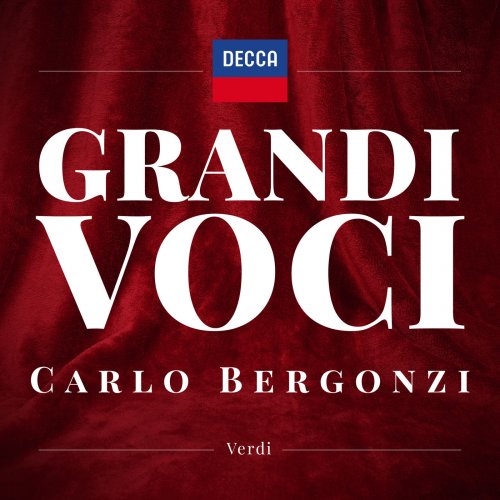
Artist: Carlo Bergonzi
Title: GRANDI VOCI CARLO BERGONZI - VERDI
Year Of Release: 2022
Label: UMG Recordings, Inc.
Genre: Classical
Quality: FLAC (tracks)
Total Time: 3:43:30
Total Size: 989 MB
WebSite: Album Preview
Tracklist:Title: GRANDI VOCI CARLO BERGONZI - VERDI
Year Of Release: 2022
Label: UMG Recordings, Inc.
Genre: Classical
Quality: FLAC (tracks)
Total Time: 3:43:30
Total Size: 989 MB
WebSite: Album Preview
01. "Ciel che feci!... di qual sangue..."
02. "Pietoso al lungo pianto"
03. Cavatina: "La mia letizia infondere" - "Come poteva un angelo"
04. "Mercé, diletti amici"
05. "Notte! perpetua notte..Non maledirmi"
06. "Nel suo bel volto" - "Sotto una quercia parvemi"
07. "Miserandi avanzi" - "Irne lungi"
08. "Qual notte!" - "Qui, qui sostiamo" - "Ella in poter del barbaro!" - "Cara patria, già madre e reina"
09. "Qui del convegno è il loco" - "Che non avrebbe il misero"
10. Aria: "O figli, o figli miei!"
11. "Quando io leggo in Plutarco" - "O mio castel paterno" - "Ecco un foglio" - "Nell'argilla maledetta"
12. "Come splendido e grande" - "Di ladroni attorniato"
13. "Eccomi prigionero!"
14. Scena: "O magnanima e prima"/Cavatina: "La pia materna mano"
15. "Oh! fede negar potessi" - "Quando le sere al placido"
16. "Questa o quella"
17. Scena ed Aria. "Ella mi fu rapita"
18. "La donna è mobile"
19. "Il presagio funesto" - "Ah sì ben mio" - "Di quella pira"
20. "Lunge da lei" - "De' miei bollenti spiriti"
21. "E di Monforte il cenno!" - "Giorno di pianto"
22. "Oh inferno...Sento avvampar"
23. Sotto il sol di Siria ardente
24. "Di'tu se fedele"
25. "Forse la soglia attinse" - "Ma se m'è forza perderti"
26. "La vita è inferno" - "Oh, tu che in seno agli angeli"
27. "Fontainebleau! Foresta immensa e solitaria!...Io la vidi e al suo sorriso"
28. "Se quel guerrier io fossi!" - "Celeste Aida"
29. "Dio! mi potevi scagliar"
30. "Niun mi tema"
31. "Dal labbro il canto estasiato vola"
32. "Quai voci!"
33. "Quando io leggo in Plutarco"
34. "O mio castel paterno"
35. "Nell'argilla maledetta"
36. "Come splendido"
37. "Di ladroni attorniato"
38. Ella mi fu rapita! (Duca)
39. Parmi veder le lagrime (Duca)
40. "La donna è mobile"
41. Bella figlia dell'amore (Duca, Maddalena, Gilda, Rigoletto)
42. "Ah sì ben mio"
43. "Di quella pira"
44. "Libiamo ne'lieti calici" (Brindisi)
45. "Un dì felice, eterea"
46. "Lunge da lei" - "De' miei bollenti spiriti"
47. "Signora..." "Che t'accade?...Parigi, o cara"
48. La rivedra nell'estasi
49. "Fontainebleau! Foresta immensa e solitaria!"
50. "Io la vidi e al suo sorriso"
51. "La fatal pietra sovra me si chiuse"
52. "Presago il core della tua condonna"
53. "O terra, addio; addio valle di pianti"
Tenor Carlo Bergonzi, for many, epitomized Verdian grace and style, not only for his generation, but for the entire 20th century. His parents were great opera lovers and took him to see Il trovatore when he was just six. Bergonzi responded enthusiastically: the next morning, his parents found him in the kitchen, singing "Di quella pira" as best he could, and staging the scene with kitchen implements. He performed under slightly more formal auspices, in church choirs and in child roles in the Busseto Opera. When he was 14, he auditioned for Edmondo Grandini. Grandini decided that Bergonzi was a baritone and offered him lessons. Bergonzi moved to Brescia to study with him, though his studies were interrupted by the war and later by his imprisonment for anti-Nazi activities in a German prisoner-of-war camp. When the war ended, he returned to Italy and began studies at the Boito Conservatory in Parma.
At the conservatory, he was still considered a baritone. He studied with Ettore Campogalliani and after graduation, made his professional debut as Schaunard in La bohème in 1947, his debut in a lead as Rossini's Figaro in 1948 at Lecce, and continued to sing leading baritone roles there, even at one point replacing Tito Gobbi as Rigoletto. However, he himself remained convinced that he was a tenor. Finally, having used what he had learned at the conservatory and recordings of other tenors, particularly Caruso, Schipa, Gigli, and Pertile, and what he remembered from singing on stage with Schipa and Gigli, he made his debut as a tenor at Bari as Andrea Chénier in 1951 and soon sang two major Verdi tenor roles: Riccardo (Un ballo in maschera) and Alvaro in La forza del destino. To keep his voice flexible, he also sang lighter roles, such as Nemorino and even Nero in Monteverdi's L'incoronazione di Poppea. In 1953 he made his La Scala debut creating the role of Mas'Aniello in Napoli's opera and his London debut as Alvaro, his American debut at the Lyric Opera of Chicago in 1955, and his Met debut the following year. His Covent Garden debut, again as Alvaro, was not until 1962. He became a regular performer at nearly all of the great opera houses, renowned not only for his singing, but for consistency. He kept his versatility throughout his career, alternating lyric and spinto roles and even some verismo roles. He was never a great stage actor, nor did he have the matinee-idol looks of some of his contemporaries, but was an excellent vocal actor, singing each role with the colors he felt it demanded, rather than a "one voice fits all" approach. During the 1980s he began to focus more on recitals and concert performances and also became a well-known teacher, concentrating on technique. He created a voice school in Busseto, and was instrumental in the "Concorso internazionale di voci verdiane," a competition for aspiring Verdi singers.
He recorded all of his major Verdi roles. He often referred to his 1976 recording on Philips of 31 major arias from every Verdi opera, which won the Deutscher Schalplattenpries, Premio della critica discographica italiana, and the Stereo Review Record of the Year awards, as the recording of which he was proudest. His complete recording of Pagliacci on Deutsche Grammophon for von Karajan shows him thoroughly at home in the verismo style. On Sony, he made an exemplary recording of Italian songs. ~ Anne Feeney
At the conservatory, he was still considered a baritone. He studied with Ettore Campogalliani and after graduation, made his professional debut as Schaunard in La bohème in 1947, his debut in a lead as Rossini's Figaro in 1948 at Lecce, and continued to sing leading baritone roles there, even at one point replacing Tito Gobbi as Rigoletto. However, he himself remained convinced that he was a tenor. Finally, having used what he had learned at the conservatory and recordings of other tenors, particularly Caruso, Schipa, Gigli, and Pertile, and what he remembered from singing on stage with Schipa and Gigli, he made his debut as a tenor at Bari as Andrea Chénier in 1951 and soon sang two major Verdi tenor roles: Riccardo (Un ballo in maschera) and Alvaro in La forza del destino. To keep his voice flexible, he also sang lighter roles, such as Nemorino and even Nero in Monteverdi's L'incoronazione di Poppea. In 1953 he made his La Scala debut creating the role of Mas'Aniello in Napoli's opera and his London debut as Alvaro, his American debut at the Lyric Opera of Chicago in 1955, and his Met debut the following year. His Covent Garden debut, again as Alvaro, was not until 1962. He became a regular performer at nearly all of the great opera houses, renowned not only for his singing, but for consistency. He kept his versatility throughout his career, alternating lyric and spinto roles and even some verismo roles. He was never a great stage actor, nor did he have the matinee-idol looks of some of his contemporaries, but was an excellent vocal actor, singing each role with the colors he felt it demanded, rather than a "one voice fits all" approach. During the 1980s he began to focus more on recitals and concert performances and also became a well-known teacher, concentrating on technique. He created a voice school in Busseto, and was instrumental in the "Concorso internazionale di voci verdiane," a competition for aspiring Verdi singers.
He recorded all of his major Verdi roles. He often referred to his 1976 recording on Philips of 31 major arias from every Verdi opera, which won the Deutscher Schalplattenpries, Premio della critica discographica italiana, and the Stereo Review Record of the Year awards, as the recording of which he was proudest. His complete recording of Pagliacci on Deutsche Grammophon for von Karajan shows him thoroughly at home in the verismo style. On Sony, he made an exemplary recording of Italian songs. ~ Anne Feeney
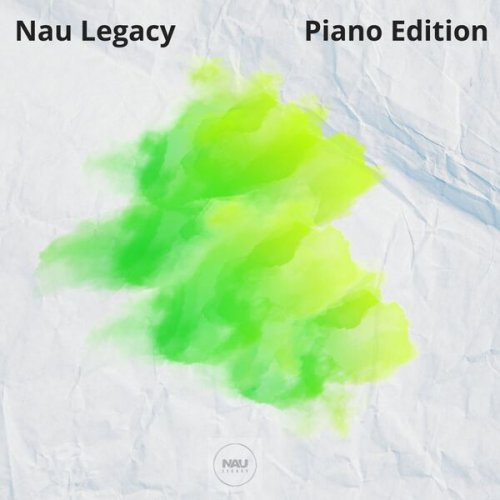
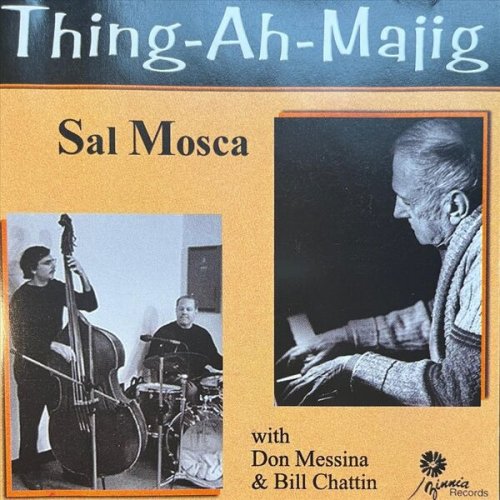
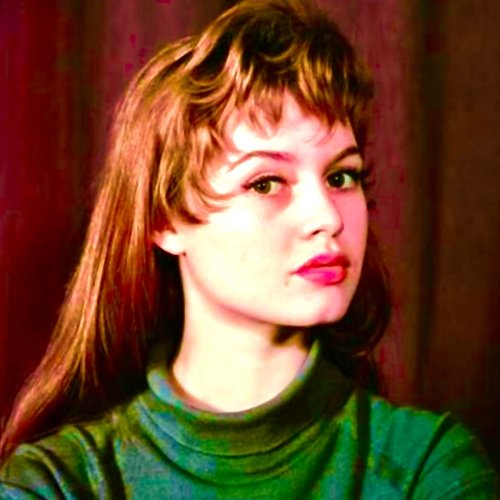
![Jamaican Jazz Orchestra - Rain Walk (2019) [Hi-Res] Jamaican Jazz Orchestra - Rain Walk (2019) [Hi-Res]](https://img.israbox.com/img/2025-12/21/snzv0mdiaf2dg21tiqrm87jaq.jpg)
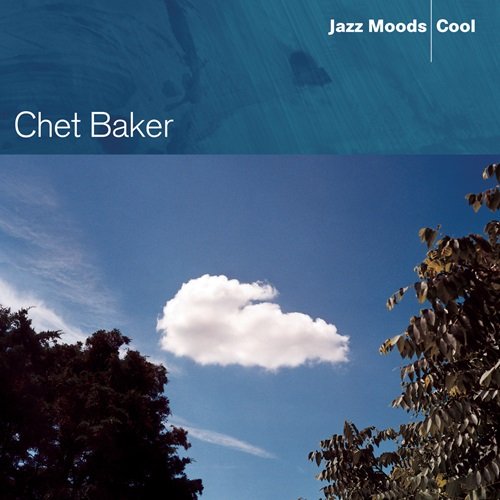
![Teho Teardo, Blixa Bargeld - Christian & Mauro (2024) [Hi-Res] Teho Teardo, Blixa Bargeld - Christian & Mauro (2024) [Hi-Res]](https://img.israbox.com/img/2025-12/21/bjlcx9vjtvjfc16apdpl5r09h.jpg)
![The Mood Mosaic - Spaghetti Groove (The Italian Psychedelic Way) (2025) [Hi-Res] The Mood Mosaic - Spaghetti Groove (The Italian Psychedelic Way) (2025) [Hi-Res]](https://www.dibpic.com/uploads/posts/2025-12/1766134183_k1k4hhixemtxa_600.jpg)

